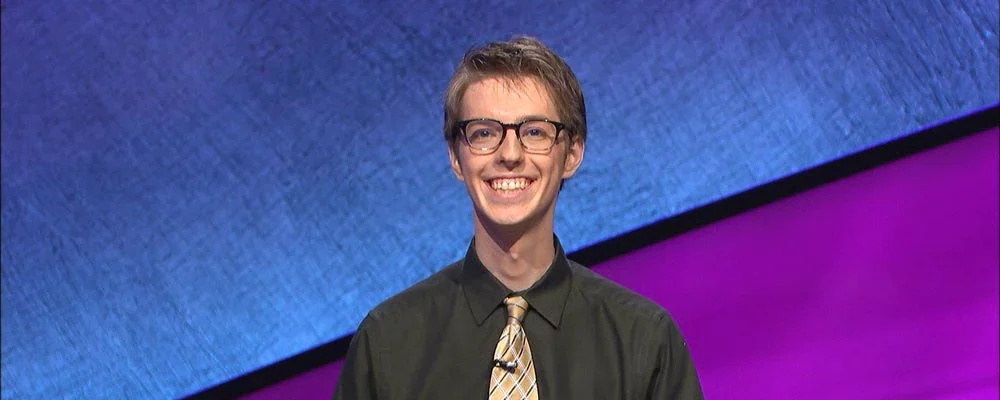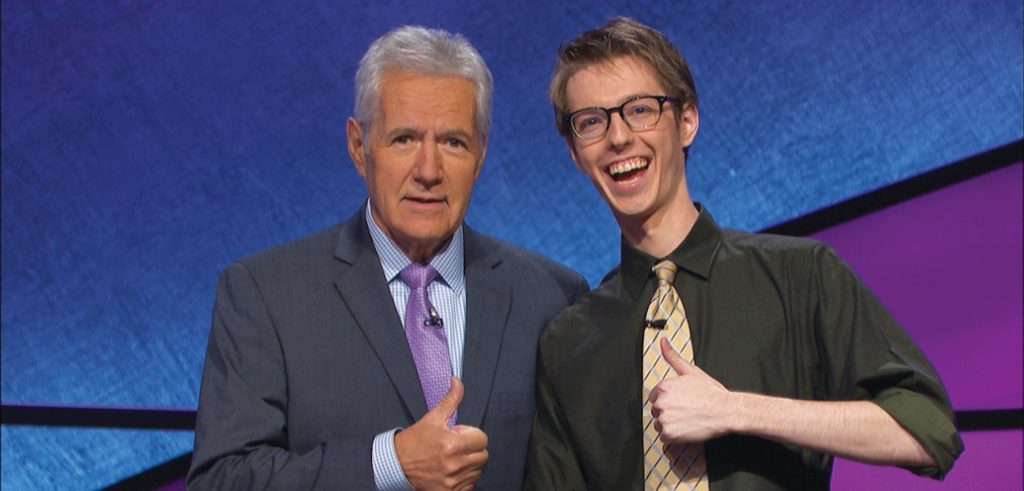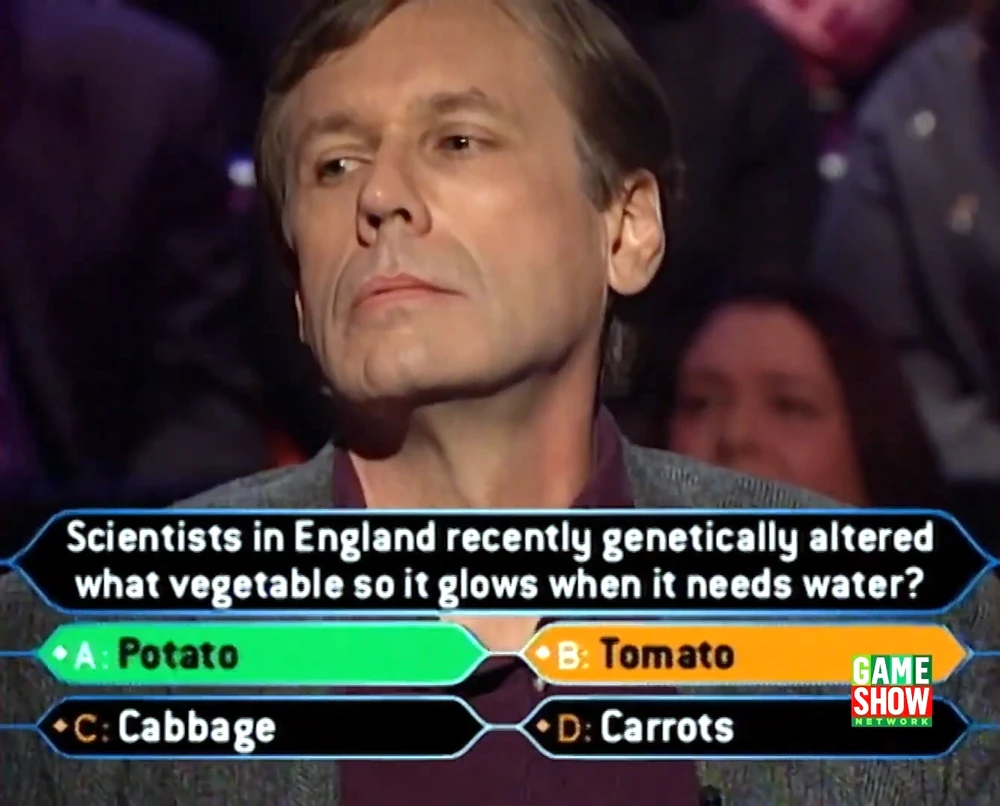
When Game Shows Get It Wrong, And How They Fix It (Or Don’t)
The folks working on game shows aren’t perfect. Mistakes will occasionally slip through the cracks, which can result in major disadvantages or losses for certain contestants. Sometimes the show will do everything in their power to make things right, and sometimes they’ll let the results stand. Let’s take a look at some examples of both cases.
Perhaps the most famous judging error on Match Game took place in 1977. An incident that was dubbed the School Riot took place on the following question. “Dumb Dora is so dumb, she sent her cultured pearls to [BLANK].” The contestant Craig filled in the blank with SCHOOL, which wound up causing quite a stir. Edward Asner and Brett Somers both said COLLEGE, and the judges counted their answers as matches. Charles Nelson Reilly’s answer of SCUBA DIVING SCHOOL was also accepted as a match, although he had to argue with the judges about it first. But things really started to go off the rails when the host Gene Rayburn asked the bottom row of panelists to reveal their answers.
Debralee Scott’s answer was FINISHING SCHOOL, which was initially accepted as a match as well. That ruling was quickly reversed, and Craig’s fourth point of the round was taken off the board. Richard Dawson revealed that he had also written down FINISHING SCHOOL, which is when Scott realized that neither of their answers counted as a match. Scott and Dawson both argued to no avail that if SCUBA DIVING SCHOOL and COLLEGE were matches, then FINISHING SCHOOL should be as well. Patti Deutsch reluctantly revealed that she had written NIGHT SCHOOL, which (after some deliberation) was also not accepted as a match. So instead of getting the maximum six points, Craig was only credited with three matches for the round.
Craig went on to lose the game, after his opponent Kathy matched every panelist with her second round question. Many people, including the celebrities, believed that the game should have ended in a tie. Scott, Dawson, and Deutsch kept their cards from Craig’s question in front of them for the remainder of the episode, in an act of protest against the decision. Eventually, it was decided that Craig did indeed deserve credit for matching every celebrity, so he was invited back to the show three episodes later. He won one game after being given a second chance, earning $600 along the way.
Family Feud has had its fair share of rematches over the years. If something goes wrong, it’ll often be caught during or shortly after the game. To give one example, the Teffeteller and Jackson families once played against each other in 1983. The Teffetellers ended up losing, possibly due to a judging error. The triple points question was “Name a tourist attraction, past or present, named after a president.” The Jacksons won control of the question, and one of their answers was the Kennedy Center.
This was ruled as correct, but it shouldn’t have been. By saying the Kennedy Center, the Jacksons (who went on to win the game) were given credit for Cape Kennedy, which is not the same place. Cape Kennedy is now known as Cape Canaveral, a location in Florida that’s well known for its rocket launch site. On the other hand, the Kennedy Center is a performing arts center in Washington DC. Both attractions are named after the same president, but they’re two distinct places.
Immediately after the question, host Richard Dawson pointed out that Cape Kennedy and the Kennedy Center are not the same, which meant that the Jacksons were given points for a wrong answer. Since they weren’t proven to be the rightful winners, Dawson invited both teams back for another game. The Teffetellers won the rematch, and went on to appear in two more episodes after that.
Holding a rematch is the simplest and fairest course of action in this case, even though we can’t know for sure if the error affected the outcome of the game. The Teffeteller family failed to steal the points, but they might have said Cape Kennedy if it wasn’t already on the board.
Bringing contestants back to the show to play again is one of the most common ways to make up for an error. But if it’s caught during the episode, there may be another solution. In 2004, Serena Stein and Gerardo Sanchez appeared on The Price is Right. Serena won a ceiling fan in the second one bid round by bidding $1, because all of her opponents went over the actual price. She went on to win a car by playing Let ‘Em Roll.
Not so fast.
The actual retail price of the fan was $999. Gerardo’s bid was misheard in real time, and it was displayed as $1795. But he had actually bid $775, which would have made HIM the winner instead. That meant Serena shouldn’t have been called on stage, and she won the car that Gerardo was supposed to play for. This mistake was caught during the commercial break, and the show made things right and then some. Serena was allowed to keep the car she won, but Gerardo was given one as well. Since Gerardo was supposed to go up on stage, he was sent straight to the Showcase Showdown, and Serena was placed back on Contestant’s Row. She went on to win the next one bid, but she lost her second pricing game.
Since the show was responsible for this mix-up, neither contestant was penalized for it. One could argue that Serena didn’t deserve the car since she wasn’t supposed to play for it in the first place, but game shows tend to err in the contestants’ favor in situations like this. If a contestant is playing fairly, and they win a prize due to a mistake like this, said prize usually won’t be taken away from them. Both contestants were awarded the same car, which is the fairest (and most fun) solution.

Writing trivia questions is no easy task. Every once in a while, a quiz show will ask a question with more than one right answer without realizing it. Ryan Fenster appeared on Jeopardy in February 2018, and the following $1,200 clue appeared during Double Jeopardy of his fifth game. “St. Thomas Aquinas died while traveling to Lyon, France while attempting to heal this rift between the Latin and Greek churches.” The response the show was looking for was “schism,” but Ryan was ruled wrong when he said “What is the Great Schism?”
The term “The Great Schism” is usually used to refer to a 1054 event, where the Catholic Church and Orthodox Church separated. The clue in Ryan’s episode was about a different schism that took place in 1378, which is most commonly called the Western Schism. As it turns out though, “The Great Schism” can refer to either split, so Ryan’s response should have been considered correct.
Ryan finished Double Jeopardy with $4,200, and he wagered it all on Final Jeopardy. He got the clue right, but he still fell short of a victory, because his opponent Jenny Rhodes finished with $11,899. If Ryan had gotten credit for his response of “The Great Schism,” he would have had an additional $2,400 to wager, which would have given him a chance to win the game.
After further research into the topic was conducted, Jeopardy decided to invite Ryan back to the show. He defeated Michelle Cabral in his first game back, and eventually finished as a 7-day champion. Ryan qualified for the Tournament of Champions, but he came in 3rd in his quarterfinal game.
When in doubt, just give them the prizes. In many cases, that’s been The Price is Right’s modus operandi over the years. Sometimes people have won prizes by doing absolutely nothing. In Ten Chances, contestants are tasked with guessing the prices of three prizes. At the beginning of the game, the name of the prize is visible on the game board. Under that is a jumble of digits, which the contestant is meant to pick from to guess the price. Under that jumble is the correct price, which isn’t meant to be revealed until the contestant gets it right or the game ends.
But during one episode in 2000, the jumbled digits weren’t on the game board at all. Daniel won all three prizes by default (including a nearly $20,000 Dodge van), because the prices were revealed instantly.
Funnily enough, this wasn’t the only time Daniel won by default in this episode. He went on to the Showcase Showdown, which he ALSO won automatically. He was the last to spin, but both of his opponents had already been eliminated because they went over $1. Daniel won a clock on Contestants’ Row, did jack squat for the next half hour, and accidentally waltzed all the way to the showcase round.
Who Wants To Be A Millionaire has had its fair share of dubious questions over the years. In 2001, Ed Toutant appeared on Millionaire, and he was asked this $16,000 question.

Ed believed the answer was tomatoes, but the right answer was revealed to be potatoes. There are two problems with this question (and neither of them have anything to do with whether a tomato is a fruit or a vegetable). First of all, there was indeed an experiment about glowing potatoes, but it took place in Scotland rather than England. But the kicker is that there was a different scientist working on glowing tomatoes in Oxford. As it turns out, Millionaire was wrong about this question and Ed was actually right.
The show brought Ed back later that year for another chance at the top prize. When he first appeared on the show, Millionaire had a progressive jackpot. For each episode that ended without a contestant winning the top prize, the final question’s value was increased by $10,000. Even though the progressive jackpot was removed from the show after Kevin Olmstead won $2.18 million, Ed was given the chance to play for $1.86 million, which is where the jackpot stood during his original appearance.
He started his second chance with his Ask The Audience lifeline restored, as well as a brand new $16,000 question. He answered it correctly, and eventually made it all the way to the top of the money ladder. His $1.86 million question was “During World War II, US soldiers used the first commercial aerosol cans to hold what?” Ed answered correctly with insecticide, and won the grand prize in his second chance on the show.
Sometimes game shows don’t get the chance to truly make up for their errors. One of the most notable examples occurred on Million Dollar Money Drop, a short-lived American adaptation of a British quiz show format. The very first episode featured Gabe Okoye and Brittany Mayti as contestants. Their fifth question asked, “Which of these was sold in stores first?” Their three choices were Macintosh computer, Sony Walkman, and Post-It Notes.
At this point, Gabe and Brittany had $880,000, out of the $1 million they started with. They deliberated over the answer, and eventually decided on Post-It Notes. When time expired, they had $80,000 on Walkman, and $800,000 on Post-It Notes. After explaining their choice, the Walkman was revealed as the correct answer, which lost Gabe and Brittany $800,000.
As it turns out though, Post-It Notes was in fact the right answer to the question. They were sold in four cities in 1977 under the name Press ‘N Peel, before debuting nationwide as Post-It Notes in 1980. The Walkman first went on sale in 1979, two years AFTER Press ‘N Peel’s launch. The show’s executive producer Jeff Apploff originally stood by Walkman being the correct answer, but changed course two days later. He admitted that the show’s research department had indeed made a mistake.
Due to the rules of the game, this error didn’t actually affect the final outcome in any way. The last question of the game has two choices, and contestants are required to place all of their money on one answer. Gabe and Brittany answered their final question incorrectly, so they would have left with nothing anyway.
Apploff said that Gabe and Brittany would be invited back to the show to try again, even though the Post-It mistake wasn’t the deciding factor in their game. They were never actually given the chance to return though, because Million Dollar Money Drop ended up being cancelled after the first season. The show didn’t have the opportunity to do what many perceived to be the right thing.
Sometimes a contestant will be the victim of a bad question on a long-running game show, but they won’t be invited back. Peter Nielsen appeared on Jeopardy in 1996, but he lost his first and only game due to a bad Final Jeopardy clue. The contestants were asked to name the largest landlocked country in the world. Peter wrote down Kazakhstan, and his opponent Gene Ballesty wrote Mongolia. Gene was given credit for a correct response and won the game, but that was a mistake on Jeopardy’s part.
Kazakhstan’s area is approximately 1,052,000 square miles, compared to Mongolia’s 604,000. Peter was the only contestant to respond with Kazakhstan, which should have given him the win. He came into Final Jeopardy with $3,700, and he wagered it all on this clue. Had he been ruled right, $7,400 would have been enough to win the game. Since he wasn’t given credit for a correct response, he lost all his money and finished in last place.
Jeopardy got this clue wrong, but there is a plausible theory that could explain how this happened. Mongolia wasn’t the correct response at the time the episode taped, but it would have been right just a few years prior. Kazakhstan was a part of the Soviet Union (a country that wasn’t landlocked) until 1991. Today, Mongolia is the second largest landlocked country, so it would have been the largest before the dissolution of the Soviet Union. It’s been theorized that whoever wrote the clue was using out-of-date material as a reference.
Unlike Ryan Fenster, Peter never got an invitation to return to Jeopardy. He passed away in 2005, without ever getting the second chance he deserved.
Wheel of Fortune is a word game, so it naturally has strict rules about pronunciation. That makes sense to some extent, but sometimes those rules are taken a step too far. Renee Durette appeared on Wheel in 2012, and she attempted to solve the puzzle SEVEN SWANS A-SWIMMING. She dropped the last G, so her solution came out as SEVEN SWANS A-SWIMMIN’. After some hesitation, Pat Sajak said that Renee had been ruled wrong, and her opponent Amy went on to solve it successfully.
Many fans disagreed with this ruling, and there are a few main reasons for that. A lot of people naturally drop the G in words like SWIMMING, including Renee. In a subsequent appearance on The Today Show, the anchors made remarks about Renee’s accent, and how she tends not to pronounce the G in words that end with -ING.
One other point worth considering is that SEVEN SWANS A-SWIMMING is a lyric from The Twelve Days of Christmas. The exact pronunciation of the word SWIMMING in the song varies from person to person, but many versions drop the G as well. Many viewers believed that either pronunciation should have been acceptable considering these circumstances. Regardless, the show stood by the original decision, and Renee was not invited back. She finished her appearance with $8,200, which was not enough to win the game.
Making a game show is no easy task. At the end of the day, the people in charge of writing and judging are human, and they’re bound to make a mistake every now and then. Most of the time, these shows will go out of their way to do the right thing, and make it up to the contestant however they can. Unfortunately, that isn’t always the case. Sometimes the show will stand by their decision, or they’ll run out of time to set things right.
